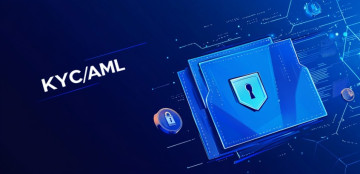Register software and transfer technology to the USA
The globe of modern technology is moving at a breakneck pace. Yesterday you were writing code in a coffee shop in Kyiv or Lviv, and today you're working out with a capitalist in San Francisco. And that's where the question arises: how to safely transfer your product to the USA so that you don't face legal or technology rights issues later?
When discussing what is technology transfer, it’s not simply a matter of moving code from one server to another ,as it may seem, or using tools to transfer software to new computer systems. It’s about ensuring that intellectual property rights, contracts, and regulations are fully respected. This is why companies and startups turn to specialized technology transfer services and seek guidance from a Patent Attorney—a professional who understands both law and technology at once.
What is included in the technology transfer service?
When businesses engage in a technology transfer program, they often underestimate how multifaceted it really is. Below are some of the essential components included in professional support:
- Verification of intellectual property rights - so no one challenges your technology in the USA.
- Contract preparation - not "downloaded from Google," but real contracts that account for U.S. laws and your interests.
- Assessment of restrictions - whether your technology falls under sanctions, the 7 technological systems, or the "dual-use" category.
- Tax planning—to avoid double taxation and create structures like, for example, technology transfer LLC.
- Legal protection - in case of disputes or if a partner "wants more than agreed."
Each of these steps forms part of a structured technology transfer plan. With this approach, you don’t just get documents - you get a reliable foundation for safe market entry.
Why should you consult a Patent Attorney?
Legal challenges in technology transfer in business are like navigating an unknown city. You could try it yourself, but the risks of getting lost are high. A Patent Attorney is that trusted guide—one who knows the "streets" of U.S. legislation, technical language, and industry practice.
Many businesses try to rely on generic templates or “quick fixes,” but experience shows this approach often backfires. For example, when drafting an arranging a technology transfer license agreement, missing one clause can lead to lawsuits or loss of rights. Consulting a professional ensures that your contracts match your long-term ambitions.
What does a Patent Attorney do?
To better understand the role, it’s useful to look at some technology transfer examples from practice. A Patent Attorney is not just a legal advisor but a strategist who ensures that every step of your tech transfer program is secure:
- Thoroughly checks your technology for compliance with U.S. export regulations.
- Drafts contracts that "work," not create problems, even for specialized frameworks like technology transfer course projects.
- Explains complex things in simple terms—so you truly understand what's happening. This is similar to learning from a technology transfer certificate program.
- Protects your interests in negotiations with partners and investors, whether they are academic institutions running university technology transfer projects or private corporations.
- Helps navigate all bureaucratic procedures faster and painlessly.
This kind of support is comparable to structured technology transfer training program modules. At the end of the process, you don’t just get contracts—you get the peace of mind that your technology will safely enter the U.S. market.
When is this service needed?
This service is especially relevant when:
- You're entering the U.S. market and signing a contract with an investor.
- Your technology includes medical or defense solutions.
- You need to protect code from copying or unauthorized use.
- There's a risk of falling under international sanctions.
These are clear ways of technology transfer that require expert guidance. Acting too late could mean lost opportunities or costly disputes.
ConclusionLegal support for international tech transfer software and innovation is not an expense—it’s a form of strategic insurance. Properly structured agreements and compliance mechanisms protect your business from fines, blocks, and lawsuits that could otherwise derail growth. This service ensures that every technology transfer example, from contracts to investor deals, unfolds smoothly. Instead of worrying about compliance, you’ll focus on scaling your business in one of the most competitive markets in the world.


































